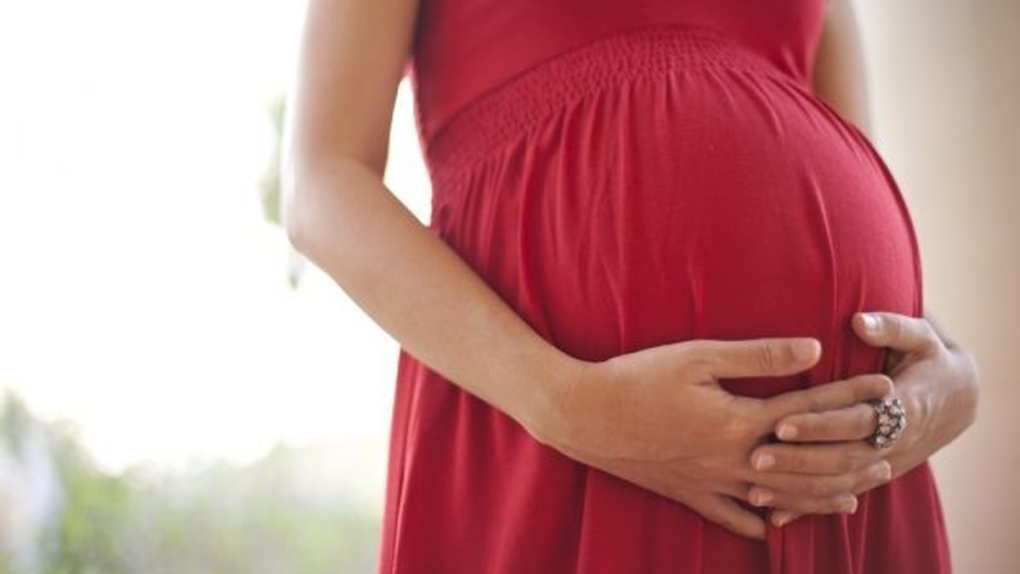
Indian envoy warns of 'big red line,' days after charges laid in Nijjar case
India's envoy to Canada insists relations between the two countries are positive overall, despite what he describes as 'a lot of noise.'
The lower house of the Russian parliament on Thursday passed a bill banning foreigners from using Russian surrogate mothers.
The bill adopted by the State Duma mandates that only married Russian citizens or single Russian women who cannot give birth to a child for medical reasons will be able to use the services of surrogate mothers.
Commercial surrogacy is legal in Russia, but religious groups have criticized the practice as too commercial and linked it to crime.
Vyacheslav Volodin, the parliament speaker, said Thursday's decision was made in order to protect Russian children. According to Volodin, writing on Telegram last week, about 45,000 babies born by surrogate mothers have been taken abroad over "the past few years."
Proponents of the bill have often associated surrogacy with child trafficking and the organ trade. They have also criticized the use of surrogates by same-sex couples.
"The purpose of the law is to prohibit surrogacy for foreign citizens. Who is coming? We don't know. Where are the children being taken? We don't know either. These are our children," Volodin told the Duma.
"They can be taken out in order to be used for (transplantation of) organs, into same-sex families. It is forbidden by law to take our children out. Children will automatically straight away receive Russian citizenship and will be protected," he added.
Under the bill passed Thursday, couples where one of the spouses is a Russian citizen will still be able to use Russian surrogate mothers. It stipulated that a child born by a surrogate mother in Russia would automatically be given Russian citizenship.
To become federal law, the bill needs to be approved by the Federation Council, the upper house of Parliament, and signed by President Vladimir Putin.

India's envoy to Canada insists relations between the two countries are positive overall, despite what he describes as 'a lot of noise.'
With Donald Trump sitting just feet away, Stormy Daniels testified Tuesday at the former president's hush money trial about a sexual encounter the porn actor says they had in 2006 that resulted in her being paid to keep silent during the presidential race 10 years later.
The U.S. paused a shipment of bombs to Israel last week over concerns that Israel was approaching a decision on launching a full-scale assault on the southern Gaza city of Rafah against the wishes of the U.S.
Footage from dozens of security cameras in the area of Drake’s Bridle Path mansion could be the key to identifying the suspect responsible for shooting and seriously injuring a security guard outside the rapper’s sprawling home early Tuesday morning, a former Toronto homicide detective says.
A chicken farmer near Mattawa made an 'eggstraordinary' find Friday morning when she discovered one of her hens laid an egg close to three times the size of an average large chicken egg.
Susan Buckner, best known for playing peppy Rydell High School cheerleader Patty Simcox in the 1978 classic movie musical 'Grease,' has died. She was 72.
Accused killer Jeremy Skibicki could have a challenging time convincing a judge that he is not criminally responsible for the deaths of four Indigenous women, a legal analyst says.
A Calgary bylaw requiring businesses to charge a minimum bag fee and only provide single-use items when requested has officially been tossed.
Two Nova Scotia men are dead after a boat they were travelling in sank in the Annapolis River in Granville Centre, N.S., on Monday.

An Ontario man says he paid more than $7,700 for a luxury villa he found on a popular travel website -- but the listing was fake.
Whether passionate about Poirot or hungry for Holmes, Winnipeg mystery obsessives have had a local haunt for over 30 years in which to search out their latest page-turners.
Eighty-two-year-old Susan Neufeldt and 90-year-old Ulrich Richter are no spring chickens, but their love blossomed over the weekend with their wedding at Pine View Manor just outside of Rosthern.
Alberta Ballet's double-bill production of 'Der Wolf' and 'The Rite of Spring' marks not only its final show of the season, but the last production for twin sisters Alexandra and Jennifer Gibson.
A mother goose and her goslings caused a bit of a traffic jam on a busy stretch of the Trans-Canada Highway near Vancouver Saturday.
A British Columbia mayor has been censured by city council – stripping him of his travel and lobbying budgets and removing him from city committees – for allegedly distributing a book that questions the history of Indigenous residential schools in Canada.
Three men in Quebec from the same family have fathered more than 600 children.
A group of SaskPower workers recently received special recognition at the legislature – for their efforts in repairing one of Saskatchewan's largest power plants after it was knocked offline for months following a serious flood last summer.
A police officer on Montreal's South Shore anonymously donated a kidney that wound up drastically changing the life of a schoolteacher living on dialysis.
 A vitamin D deficiency whilst pregnant could increase the chance of children developing multiple sclerosis (MS) in later life: study. (Twonix Studio / shutterstock.com)
A vitamin D deficiency whilst pregnant could increase the chance of children developing multiple sclerosis (MS) in later life: study. (Twonix Studio / shutterstock.com)